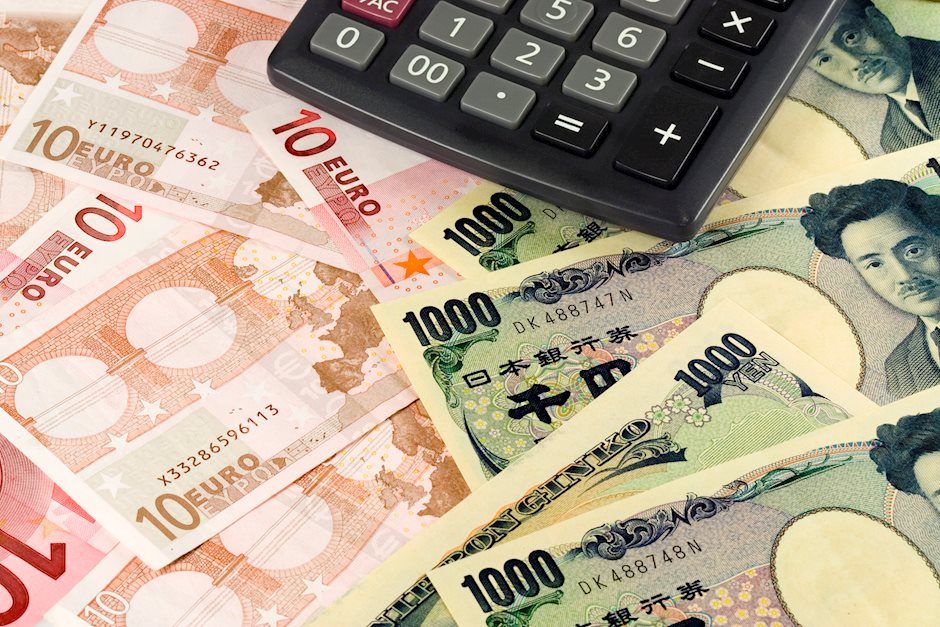Created
: 2024.07.01














![]() 2024.07.01 17:59
2024.07.01 17:59
EUR/JPY continues its winning streak for the fourth consecutive day, trading around 173.30 during the European session on Monday. The Euro has gained upside traction as the traders reacted positively to the far-right sweep in the first round of the French snap election on Sunday.
Marine Le Pen's National Rally confirmed its status as France's leading political force, marking the highest turnout in three decades. While Le Pen's party secured a clear but not definitive victory, uncertainty prevails ahead of the second round of voting on July 7, as reported by France 24.
HCOB Eurozone Manufacturing PMI was revised higher to 45.8 in June from a preliminary estimate of 45.6. Still, the PMI remains well below the survey average of 51.6, with output contracting at the fastest rate so far this year. European Central Bank (ECB) Governing Council member Olli Rehn suggested last week that the central bank might cut interest rates twice more this year.
In Japan, upbeat Japan's business confidence data lifts market sentiment, which might support the Japanese Yen, limiting the upside of the EUR/JPY cross. Japan's Tankan Large Manufacturing Index rose to 13 in the second quarter from the previous reading of 11. The index hit the highest level in two years amid an improving economic outlook. Meanwhile, Japan's Jibun Bank Manufacturing PMI for June was revised slightly lower to 50 from a preliminary reading of 50.1 but remained expansionary for the second straight month.
Additionally, the expected speculations about an imminent intervention by Japanese authorities also support the JPY. Reuters reported on Friday that Japanese Finance Minister Shunichi Suzuki said that the authorities were "deeply concerned" about the impact of "rapid and one-sided" foreign exchange moves on the economy. Suzuki added that excessive volatility in the currency market is undesirable and that authorities will respond appropriately to such moves.
In the world of financial jargon the two widely used terms "risk-on" and "risk off'' refer to the level of risk that investors are willing to stomach during the period referenced. In a "risk-on" market, investors are optimistic about the future and more willing to buy risky assets. In a "risk-off" market investors start to 'play it safe' because they are worried about the future, and therefore buy less risky assets that are more certain of bringing a return, even if it is relatively modest.
Typically, during periods of "risk-on", stock markets will rise, most commodities - except Gold - will also gain in value, since they benefit from a positive growth outlook. The currencies of nations that are heavy commodity exporters strengthen because of increased demand, and Cryptocurrencies rise. In a "risk-off" market, Bonds go up - especially major government Bonds - Gold shines, and safe-haven currencies such as the Japanese Yen, Swiss Franc and US Dollar all benefit.
The Australian Dollar (AUD), the Canadian Dollar (CAD), the New Zealand Dollar (NZD) and minor FX like the Ruble (RUB) and the South African Rand (ZAR), all tend to rise in markets that are "risk-on". This is because the economies of these currencies are heavily reliant on commodity exports for growth, and commodities tend to rise in price during risk-on periods. This is because investors foresee greater demand for raw materials in the future due to heightened economic activity.
The major currencies that tend to rise during periods of "risk-off" are the US Dollar (USD), the Japanese Yen (JPY) and the Swiss Franc (CHF). The US Dollar, because it is the world's reserve currency, and because in times of crisis investors buy US government debt, which is seen as safe because the largest economy in the world is unlikely to default. The Yen, from increased demand for Japanese government bonds, because a high proportion are held by domestic investors who are unlikely to dump them - even in a crisis. The Swiss Franc, because strict Swiss banking laws offer investors enhanced capital protection.
![]()
Created
: 2024.07.01
![]()
Last updated
: 2024.07.01

FXStreet is a forex information website, delivering market analysis and news articles 24/7.
It features a number of articles contributed by well-known analysts, in addition to the ones by its editorial team.
Founded in 2000 by Francesc Riverola, a Spanish economist, it has grown to become a world-renowned information website.
We hope you find this article useful. Any comments or suggestions will be greatly appreciated.
We are also looking for writers with extensive experience in forex and crypto to join us.
please contact us at [email protected].
Disclaimer:
All information and content provided on this website is provided for informational purposes only and is not intended to solicit any investment. Although all efforts are made in order to ensure that the information is correct, no guarantee is provided for the accuracy of any content on this website. Any decision made shall be the responsibility of the investor and Myforex does not take any responsibility whatsoever regarding the use of any information provided herein.
The content provided on this website belongs to Myforex and, where stated, the relevant licensors. All rights are reserved by Myforex and the relevant licensors, and no content of this website, whether in full or in part, shall be copied or displayed elsewhere without the explicit written permission of the relevant copyright holder. If you wish to use any part of the content provided on this website, please ensure that you contact Myforex.
Myforex uses cookies to improve the convenience and functionality of this website. This website may include cookies not only by us but also by third parties (advertisers, log analysts, etc.) for the purpose of tracking the activities of users. Cookie policy